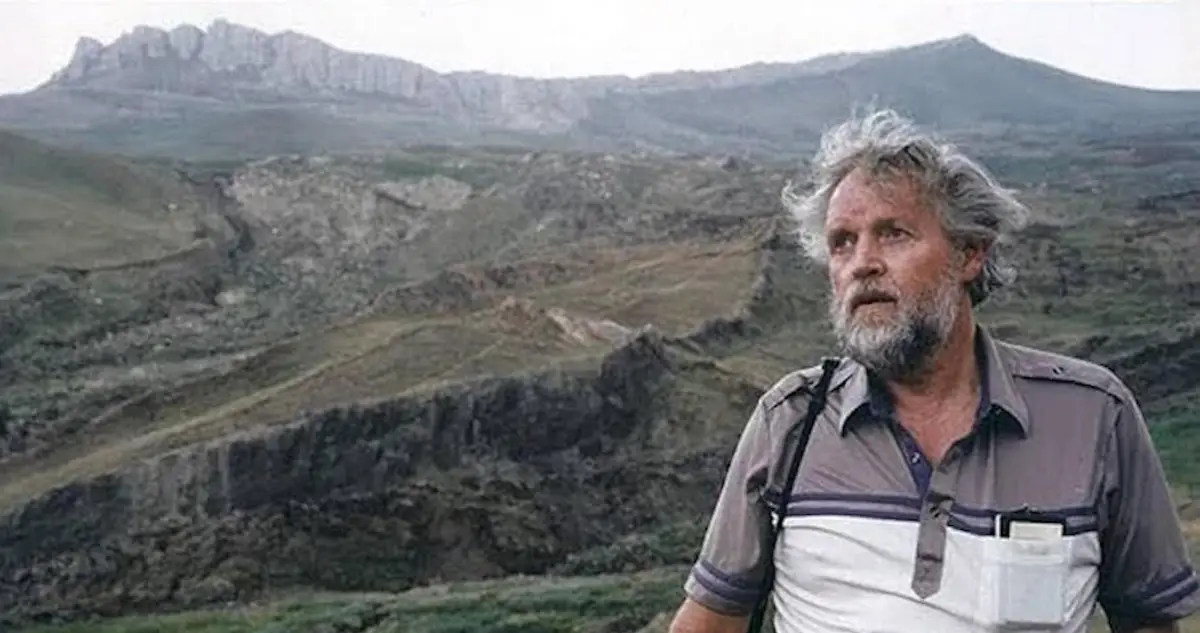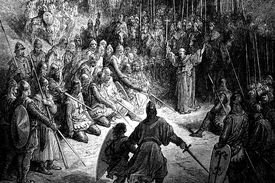Unveiling the Controversy: Ron Wyatt’s Claims of Discovering Evidence of Jesus Christ
Ron Wyatt, a figure shrouded in both intrigue and controversy, claimed to have made several groundbreaking discoveries in biblical archaeology. Among his most provocative assertions is that he found tangible evidence related to Jesus Christ. This article delves into Wyatt’s life, his major discoveries, particularly the alleged Jesus blood discovery, and the implications of his claims.
Who Was Ron Wyatt?
Early Life and Background
Ron Wyatt was born on June 2, 1933, in the United States. His early years were unremarkable, yet his later pursuits would mark him as a controversial figure in archaeology and biblical studies. Wyatt’s initial career was in the medical field, but his passion for history and biblical studies led him to pursue archaeology in a non-traditional manner.
- Personal Background: Wyatt’s transition from a medical career to archaeology was driven by his personal interest in biblical history. He became an amateur archaeologist, primarily motivated by his Christian faith.
- Initial Interests in Archaeology: His interests were sparked by his belief in the biblical accounts of ancient events and his desire to uncover physical evidence supporting these accounts.
Career and Discoveries

Ron Wyatt is best known for his claims regarding several significant archaeological finds, which he believed confirmed biblical narratives.
- Major Claims and Discoveries: Wyatt’s career was marked by a series of controversial claims, including the discovery of Noah’s Ark, the Ark of the Covenant, and the site of Jesus’ crucifixion and burial.
- Public Perception and Controversies: While Wyatt attracted a following among those who shared his faith, many in the academic community criticized his methods and findings, often labeling them as unsubstantiated or fraudulent.
The Key Discoveries Attributed to Ron Wyatt
The Discovery of the Ark of the Covenant
One of Wyatt’s most famous claims was the discovery of the Ark of the Covenant.
- Description and Location: According to Wyatt, he found the Ark in a cave beneath Jerusalem. He described it as an object of profound religious significance.
- Evidence and Controversies: Despite his claims, there was no verifiable evidence to support the existence of the Ark in the location Wyatt described. Many scholars and archaeologists have criticized his claims as lacking credible evidence.
The Search for Noah’s Ark
Wyatt also claimed to have discovered Noah’s Ark on Mount Ararat.
- Location and Findings: Wyatt’s expeditions to Mount Ararat reportedly led him to a large wooden structure he identified as Noah’s Ark. He presented photographs and sketches to support his claims.
- Analysis and Criticism: Critics argue that Wyatt’s evidence was inconclusive and that many aspects of his findings were inconsistent with established archaeological and geological data.
The Site of the Crucifixion and Burial

Wyatt’s claims about the site of Jesus’ crucifixion and burial are among his most debated assertions.
- Claims about the Golgotha Site: Wyatt identified a site outside Jerusalem as Golgotha, where Jesus was crucified. He suggested that the site contained important biblical artifacts.
- Evidence and Scholarly Reactions: The scholarly community has largely dismissed Wyatt’s claims as speculative. The lack of substantial evidence and peer-reviewed research has led many to question the validity of his findings.
The Jesus Blood Theory
The Alleged Discovery of Jesus’ Blood
One of Wyatt’s most controversial claims involves the discovery of Jesus’ blood.
- Details of the Discovery: Wyatt claimed to have found a container with blood that was tested and identified as belonging to a human with unique attributes. This discovery was presented as proof of Jesus’ existence and divine nature.
- Theories and Claims: Wyatt’s claims included the idea that the blood had unusual properties, purportedly linking it directly to Jesus Christ. He suggested that the blood’s uniqueness proved its divine origin.
Scientific Analysis and Validation
The scientific validity of Wyatt’s claims about Jesus’ blood has been a point of contention.
- Methodologies Used: Wyatt’s blood samples were reportedly analyzed by various laboratories, though details of these analyses were often unclear and criticized for lacking transparency.
- Scientific and Religious Skepticism: Many scientists and theologians have expressed skepticism about Wyatt’s findings. The lack of rigorous scientific validation and peer-reviewed research has led to widespread doubts about the authenticity of his claims.
Impact on Historical and Religious Scholarship
Wyatt’s discoveries have had a significant impact on both historical and religious scholarship, though not universally accepted.
- Reactions from the Religious Community: While some religious groups have embraced Wyatt’s findings as confirmation of biblical events, mainstream religious scholars have largely dismissed his claims as unsubstantiated.
- Academic Responses and Criticisms: The academic community has criticized Wyatt’s work for its lack of rigorous methodology and verifiable evidence. Many scholars argue that his claims do not meet the standards required for acceptance in historical or archaeological research.
Analysis of Ron Wyatt’s Claims
Credibility and Authentication
Evaluating the credibility of Ron Wyatt’s claims involves assessing the authenticity of his discoveries.
- Expert Opinions: Many experts in archaeology and biblical studies have questioned the legitimacy of Wyatt’s findings. Without substantial evidence and peer-reviewed support, his claims remain contentious.
- Historical and Archaeological Context: Wyatt’s discoveries often lack alignment with established historical and archaeological understanding, which further undermines their credibility.
Public and Scholarly Reactions
The reactions to Wyatt’s claims have been varied, reflecting a broader debate about his work.
- Supporters and Detractors: Wyatt has both ardent supporters and vocal detractors. His supporters view him as a pioneer who uncovered hidden truths, while his critics argue that his work is largely speculative.
- Influence on Popular Belief: Despite academic criticisms, Wyatt’s claims have influenced popular belief and have been embraced by some as evidence of biblical truths.
Summary of Findings
Ron Wyatt’s claims, including the discovery of Jesus’ blood, remain highly controversial and widely debated. While his assertions have captivated the imagination of many, they lack substantial academic and scientific validation. The debate over his discoveries underscores the broader challenge of verifying claims related to ancient biblical events.
Final Thoughts
The legacy of Ron Wyatt is a complex one, blending elements of intrigue, faith, and controversy. While his discoveries have sparked significant interest, they also highlight the challenges of validating extraordinary claims in the realm of archaeology and biblical history.
Meta Description: Explore the controversial claims of Ron Wyatt, including his alleged discovery of Jesus’ blood, and the impact on historical and religious scholarship.
Summary of Ron Wyatt’s Biography
| Aspect | Details |
|---|---|
| Name | Ron Wyatt |
| Birth Date | June 2, 1933 |
| Career | Amateur Archaeologist, Biblical Researcher |
| Major Claims | Discovery of Noah’s Ark, Ark of the Covenant, Site of Jesus’ Crucifixion, Jesus’ Blood |
| Controversies | Criticized for lack of credible evidence and scientific validation |
| Public Perception | Mixed; supporters view him as a pioneer, critics dismiss his findings |
This article provides an in-depth look at Ron Wyatt’s controversial claims, particularly the alleged discovery of Jesus’ blood, and assesses their impact on historical and religious scholarship.
References
- Ron Wyatt – History Defined https://www.historydefined.net/ron-wyatt/
- Wikipedia – Ron Wyatt https://en.wikipedia.org/wiki/Ron_Wyatt






